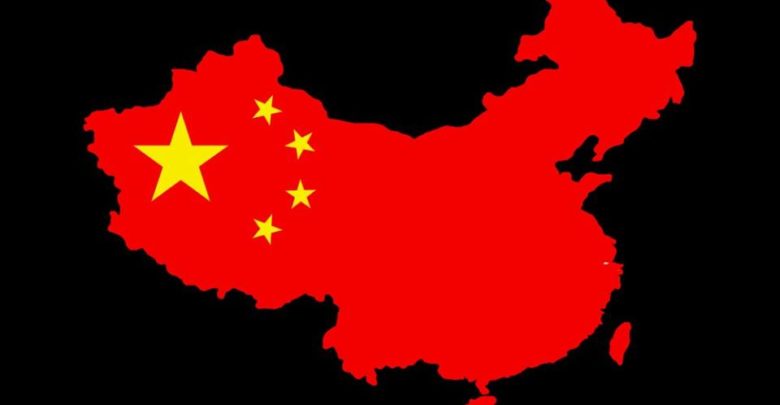China and the International Liberal Model

By/ Ramez El-Shishy – Writer and Political Researcher
Democratic Arab Center
China’s peaceful rise has posed a clear threat to the international liberal model in recent times which appeared after the collapse of the Soviet Union. The United States of America, with its faltering leadership of the international liberal model, such as the global financial crisis of 2008, is a watershed in its contemporary political history, characterized by a regressive global power ending with its behaviour in Covid-19, the Ukrainian warfare and the suffering of the American economy in general during all those crises. In contrast, China’s rise as the world’s second strongest economy in 2010 so far, with the prospect of becoming the first in a few years, has raised questions about the Chinese system politically and economically, and the future of democracy as a distinctive system of government for the international liberal model that many countries currently lack, particularly in the Middle East.
In the meantime, particularly given the superiority of the Chinese model in dealing with and managing many international crises in the international political arena such as the Covid-19 pandemic and economic and health assistance in what has been known as “mask diplomacy”. Unlike the United States of America as the leader of global liberalism after the fall of the former Soviet Union in 1991, Joseph Nye argued that it was the “American moment” and Frances Fokayama to say it was “The end of history”. Fukuyama saw capitalist democracy as the ultimate model of human ideological development. Thus, it represents the end of history, he did not realize that this ideological proposition also did not stem from deep visions and extrapolations in history, formulas and human models, and that he would probably be surprised by what happened to the capitalist financial system in the United States, which he considered the end of all human philosophies and ideas, and that global economies are living their negative tastes and their impact on nations in their lives and stability, most recently the financial crisis that hit the West several years ago, and the accompanying phenomenon of populism, the rise of the right, Chinese, Russian ascent and now the Covid-19 pandemic and the issue of climate change that has emerged as a crisis of new and urgent crises facing the liberal model. As the international liberal model expanded after the Cold War, it grew to include many non-liberal states. But it was only China’s rise that melted economic and security concerns about the consequences of allowing an liberal state to flourish within the system. Continued liberalism and China’s growing military and economic power have helped to question the adequacy of existing institutions, from the World Health Organization to the World Trade Organization.
CCP Policy
The features of Chinese Communist Party rule run counter to many of the fundamental principles of the liberal model, but may coexist with the return of both Chinese and liberal growth to the Westphalia principles. This can be demonstrated by the policies of the Chinese Communist Party, which has spent no great energy to defeat these liberal principles internationally only when it threatens its survival and sovereignty at the local level. China has benefited from its participation in the global liberal system and remains a strong advocate of the Western order on which it was built. Indeed, the Chinese regime has at times seemed more invested in maintaining existing arrangements than the United States, hence the irony of Xi Jinping’s defence of free trade in Davos and cooperation with the World Health Organization to help the majority of the world’s nations combat the Covid-19 pandemic. The Chinese Communist Party has also acted strategically, investing in reshaping or rejecting international arrangements on various issues that are central to its domestic rule, and has been more willing to ride free or comply with international practices on more marginal issues. The domestic social purpose of china’s political system does not require the total destruction of the existing international order, although it prefers a more conservative version that emphasizes Western norms of sovereignty and non-interference. Within the Framework of the United Nations, for example, China has sought to change international human rights obligations to emphasize State sovereignty, oversee civil society and economic development, to be more in tune with the Asian value system in its response to the Western value system.
Hence, the future of the international liberal model and its dominance over the world seem to depend on four basic scenarios that are almost in control of its destiny.
“Democracy” Scenarios:
Scenario 1: Moving towards hybrid forms of governance
In this scenario, democracy will be steadily eroded in countries where it was previously taken for granted. Democracies around the world will gradually slide into authoritarian regimes. Ultimately, democracy will exist mostly in name only. The formal structures of democracy (elections, freedom of expression and institutions) will continue to exist, but they will be undermined by the media’s concentration in the hands of the Government, the less independent judiciary and the secret surveillance of citizens.
Scenario 2: Return to greater distinction between types of systems
Political systems will gradually form into two very distinct blocs. Authoritarian regimes will suppress democratic practices. The other group will respect these principles. International cooperation will be very limited, and the global context will severely undermine cooperation in key areas of global concern, including climate change and nuclear proliferation.
Scenario 3: The spread of democracy in all countries
In this scenario, the pressures of the crisis will prompt citizens to demand change in all types of regulations. As democracy retains its global appeal, citizens will demand greater power in political affairs and reveal the fundamental weakness of authoritarian states. Over time, this change in model will democratize many countries around the world. With authoritarian regimes losing credibility, the focus will shift to different types of democracies to suit different societal objectives.
Scenario 4: The Return of the Nation-State
The health, social and economic consequences of the Covid-19 pandemic, together with climate change, will increase conflict around the world. Countries’ economies and political structures will collapse under pressure. This situation will be even more acute in poor communities that are less able to take measures to address HIV or economic repercussions. The international system will not be able to cope with change on such a large scale, leading to a lost decade of development, a focus on security and the capacity of the nation-State at the expense of democracy, and the beginning of a new political era especially after the current Ukrainian Warfare.




